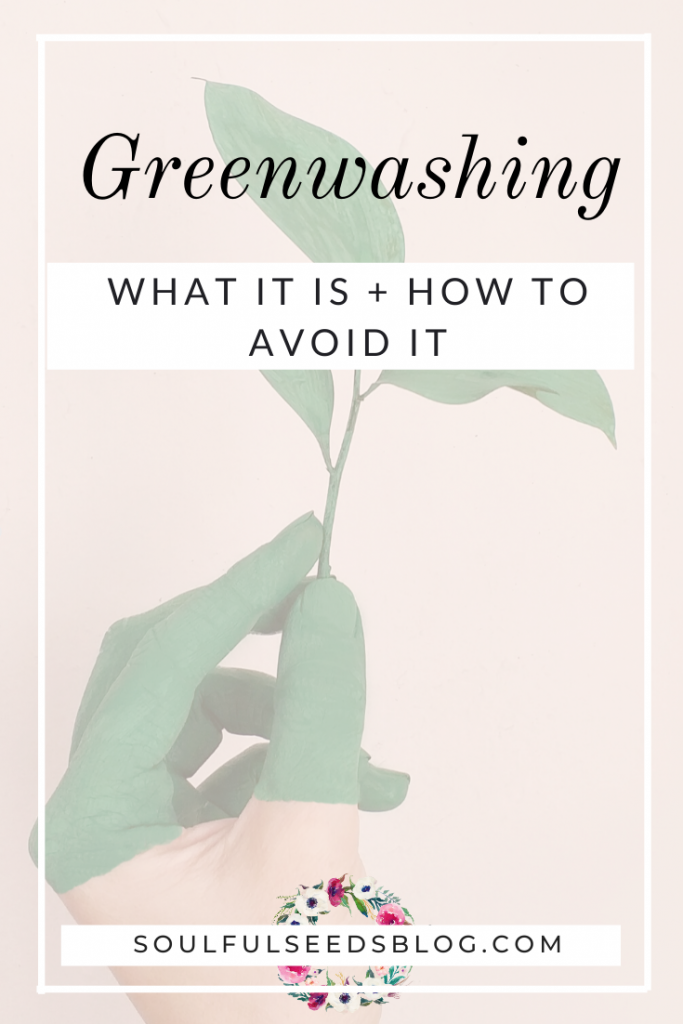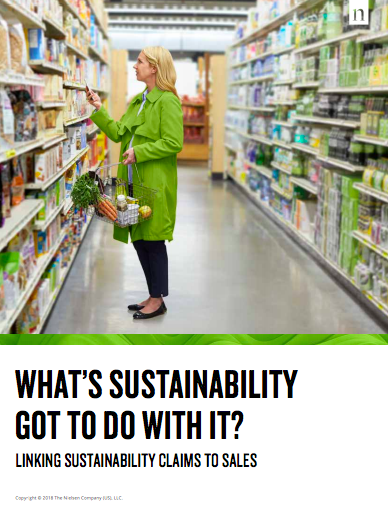“H&M has a new socially conscious line! They’re becoming an eco-friendly brand!”, my friend told me, as I processed this information with skepticism.
Efforts by huge companies to become more eco-friendly have been lauded by current shoppers of said brands, but at the same time criticized for fake claims and campaigns not backed by any real policy/practice changes.
Today I wanted to explore what exactly greenwashing is, examples of it, and what it means for the eco-friendly/sustainable fashion movement.

Greenwashing is a new term used to describe the discrepancy in what a company/brand claims to do for the environment and what they really do for the environment. The word has become representative of the larger efforts of corporations to cover their booties PR-wise, as their consumers are becoming increasingly eco-conscious. Wanna know what is greenwashing? Read more to find out.
If you are more of a visual learner, click the video below to watch my YouTube video explaining greenwashing!
You know that cheesy thing when writers start an article with the Merriam Webster definition of a word? Yup, we’re doing it! Don’t hate me. Greenwashing is officially defined as:
“expressions of environmentalist concerns especially as a cover for products, policies, or activities.”
Market Trends
In the last few years, market trends have pointed to an increased demand, especially on behalf of younger demographics, to purchase from brands with a strong environmentalist message.
The Nielsen Corporation is a globally prominent provider of market analytics and market research. A 2018 report done by the Corporation, called “What’s Sustainability Got to Do with It?” analyzed three different consumer goods: chocolate, coffee, and soaps, to look at how regular products versus products marketed as eco-friendly faired in the market.

Overall findings for the average sales of regular products across these three goods versus the average sales of products marketed as eco-friendly show that sales of products in all three categories marketed with “sustainability claims” grew faster than those of regular products.
In other words, it is profitable for businesses to present themselves as environmentally conscious.
Related-> Forever 21 Article
In reality, it is less profitable to actually implement more sustainable and environmentally friendly practices in a supply chain. Things like sourcing only organic material, reusing or repurposing old material, and purchasing carbon offsets are additional costs for a company to incur.
Because of this profitability discrepancy, companies realize they can maximize sales and save face by marketing themselves as “Green”, without doing much of anything to back up those claims.
OK. So let’s now dive into some examples of greenwashing by looking at one of the most widespread ways that companies greenwash- by using words and terms on their products that literally have no meaning.
In Health/Beauty
I’m sure you’ve seen the words “natural” printed in big letters adorning shampoo bottles, foundation, body wash, and every other type of sanitary or beauty product. I’ll admit, seeing this word provides me with a sense of peace.
Something that’s natural must come from the environment and as a result not be harmful to it, right? Just the other week, my roommate and I were at Target and after grimacing at the price of Dr. Bronner’s Soap (which truly are verified as having clean ingredients), I decided to go for a Target brand soap claiming to be Natural that was literally a fraction of the price.
Much to my chagrin, in doing the research for this post, I learned that there literally is no legal or widely accepted definition of what a product needs to be deemed “natural”.
The Food and Drug Administration (FDA), the U.S.’s body that regulates pharmaseutical drugs and food products. The FDA regulates personal care products, but only for certain things.
For example, the “organic” label for personal care products is not something under the FDA’s purview, and they do not do anything to validate those claims on beauty products. A report by research analyst Carla Burns of the Environmental Working Group revealed that the FDA doesn’t even have a working definition for what falls under the term “natural”, rendering it pretty much meaningless.
This means any company can post the word natural on a label without any basis, reaping the profits of green marketing.
This practice was confirmed in a 2008 Study done by the Organic Consumers Association, in which they found a carcinogenic petrochemical ingredient in over 40% of products claiming to be natural.
These vague claims that are pervasive among health and beauty products are far from absent in the Fashion industry.
In the Fashion Industry
Zara’s “Join Life” Collection launched in 2016. The very nature of these two massive companies is unsustainable and not eco friendly, given the fact that the business model is predicated on spewing out new designs as soon as trends are observed on the runway.
Related-> Why Fast Fashion is Bad
Despite the duplicity of the business model and sustainability, fast fashion companies have recently began to realize how much consumers are demanding sustainability and eco-friendly practices. To keep up with this demand, they have launched campaigns that make nebulous goals like
How to Identify Greenwashing
This helpful article published on FastCompany provides three key strategies to finding out whether your favorite clothing brands are actually deceiving you. In summary, the author Elizabeth Segran, mentions these three strategies:
- Seeing the sustainability claims of the average products of the brand, the ones that are not heavily marketed as sustainable or included in some collection.
- SPECIFICITY. Look behind the labels of “conscious”, “sustainable”, or “eco-friendly”. If a company truly prioritizes living up to these labels, they will have detailed information on their websites about what exactly they do to uphold them. Look for metrics displaying what the company is doing and has already done- not just what their goals are.
- Ask yourself if you feel like you are being encouraged by the brand to keep on buying products for them.
Certify the Brands
Another great way to ensure that a company is staying true to their sustainability claims is by looking for any certifications they have.
Click the link to download this FREE GUIDE to health/beauty and fashion certifications that you can look for to ensure a brand is staying true to their word!
